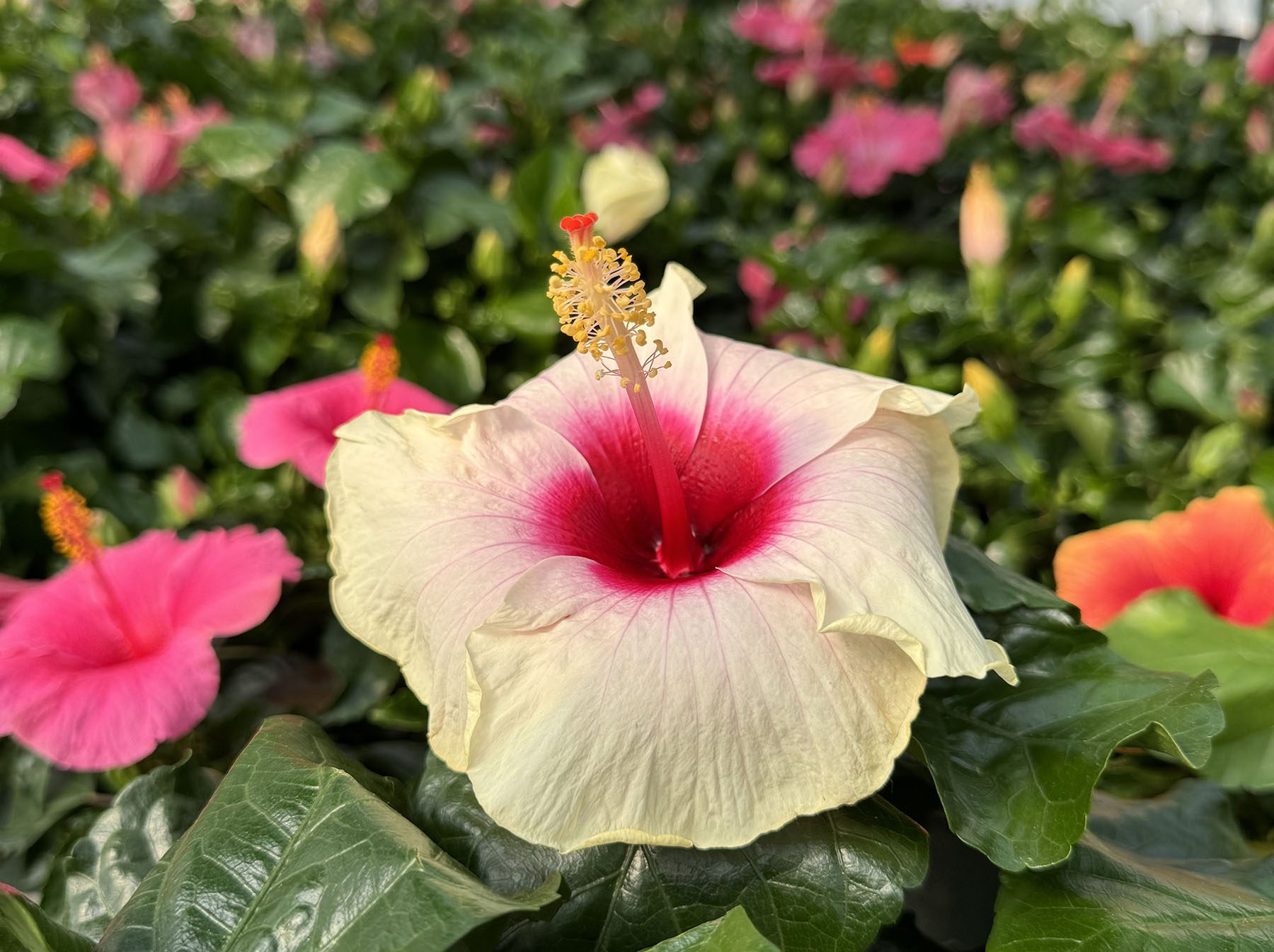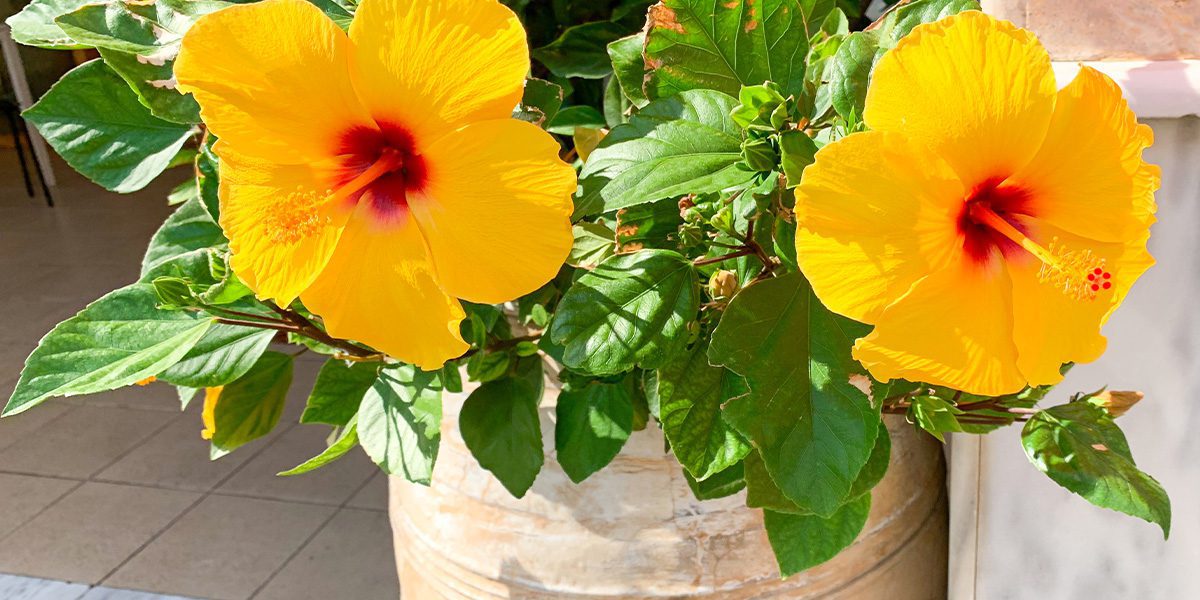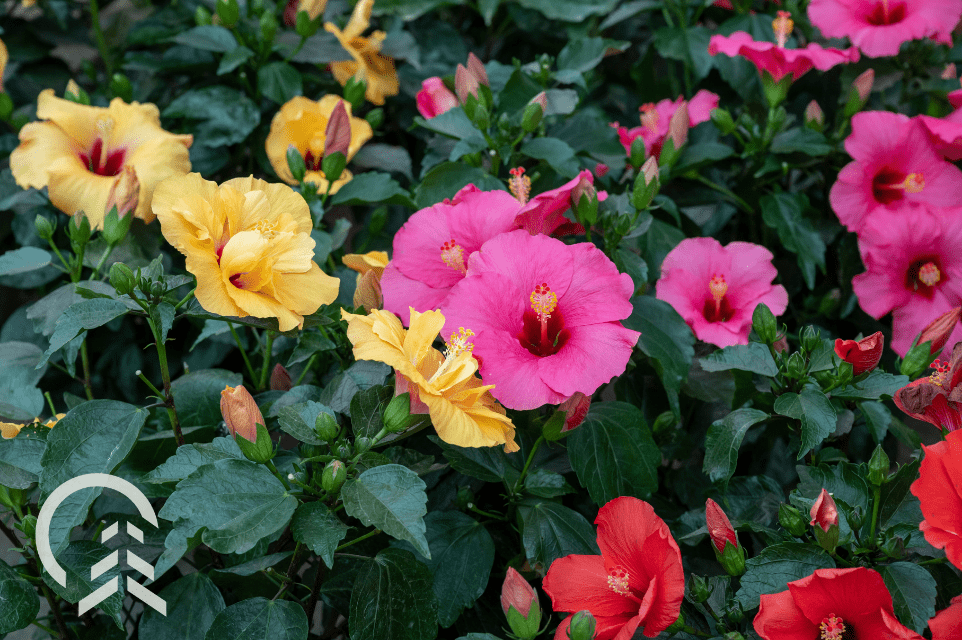Hibiscus is a group of woody shrubs and small trees that add tropical beauty to the garden throughout the growing season. There are 3 different types of hibiscus that can be grown in Chicago.
- Tropical Hibiscus– the beautiful tropical blooms associated with island climates like Hawaii. These plants can be placed outdoors in summer and brought in for winter.
- Perennial Hibiscus– a showy perennial plant that survives our winters.
- Rose of Sharon– a shrub Hibiscus that survives our winters.
Knowing the best time to plant hibiscus in Chicago, how to care for hibiscus in Chicago and the various types of hibiscus varieties you can grow in Chicago can help you find success with this beautiful flowering plant.
Key Takeaway
Most types of tropical hibiscus are hardy to zones 9 to 11, and although they cannot survive our winters, they can be grown on a patio or deck and brought inside for the winter months.
Tropical hibiscus is grown as a houseplant in the Chicago area and is only brought outside when the weather turns warmer and when the nighttime temperatures are higher than 50 degrees.

Growing Zones for Tropical Hibiscus
Hibiscus is a tropical plant, and most types of hibiscus can only be outside during the growing season. These plants can be planted in pots that live comfortably on patios and near front stoops throughout the Chicago area. Around mid-September when the temperature starts to cool, these plants are brought indoors.
How To Plant Hibiscus
Planting hibiscus is relatively easy.
Amend the soil. Hibiscus thrives in fertile, well-draining soil. If planting your hibiscus in a pot, use a sterile soil-less potting mix and choose a pot that is about 1 to 2 inches wider and deeper than the rootball.
Find the right location. Hibiscus can take the form of a tree or shrub and can grow to different sizes based on the variety of hibiscus being planted.
Additionally, hibiscus needs full sun. Find a location where your hibiscus will get at least 5 hours of direct sunlight daily. Hibiscus can be damaged by intense afternoon heat, so if your hibiscus is in a location where it receives full sun all day, plan to shade your hibiscus in the afternoon on the hottest days of the year. Additionally, keep your hibiscus well-hydrated to help it withstand the summer heat.
Water. Water the plant thoroughly and deeply, ensuring the soil is evenly moist but not waterlogged. If the top inch of soil feels dry to the touch, it’s time to water again.
How To Care for Hibiscus
Hibiscus plant care is relatively simple. Like other plants, hibiscus needs water, nutrition, and sunlight.
Water regularly. Hibiscus loves to be watered often and regularly. When in containers, they will typically need to be watered daily. Some even need to be watered twice on sunny, hot days.
Fertilize. Fertilize hibiscus every 1 to 2 weeks during the growing season with water-soluble fertilizer. Follow the instructions on the fertilizer packaging to ensure the best results. Avoid over-fertilizing.
Protect hibiscus plants from frost. Make sure to bring your hibiscus in for the winter before we have the first frost. You will want to bring your hibiscus inside while it’s still warm, around mid-September, so that it has a chance to acclimate to the drier indoor environment.
Hibiscus loves the sun. Hibiscus loves the sunshine, so be sure to put them in a sunny area on your deck or patio where they will receive at least 5 hours of sun or more.
How Long Do Hibiscus Blossoms Last?
Typical hibiscus blooms only last one day, then they fall off. Generally, there are so many buds on a hibiscus plant, that the short-lived blossoms are not a concern. There will be plenty of flowers, often several each day.
The Bottom Line

Hibiscus is a beautiful flower that is associated with tropical islands, fun beach vacations, and summer. Growing hibiscus on your property can be incredibly rewarding if you know the ins and outs of hibiscus plant care.
Furthermore, growing hibiscus on your property is easier and more rewarding when you buy healthy plants from a reputable nursery. This is why many people turn to Platt Hill Nursery for their hibiscus and other perennial and annual plants.
We select healthy plants for our customers, and we care about ensuring that our customers know how to properly care for their plant purchases. To learn more about hibiscus plant care, or to buy hibiscus in the Chicago area, contact us or stop by our Bloomingdale or Carpentersville, IL locations.


